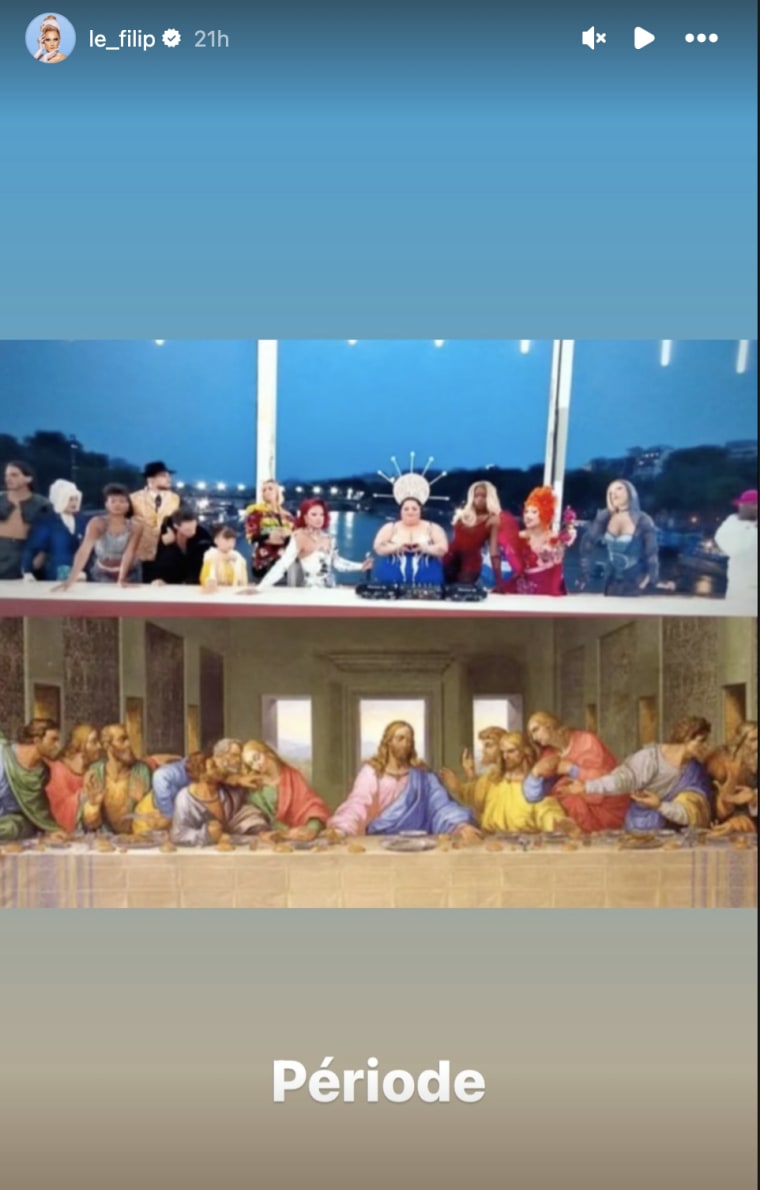Revealed: The Untold Story Behind the Olympics' Last Supper Video – Must Watch! Dive into an exclusive narrative that unveils the controversial events surrounding the Paris Olympics opening ceremony. This article explores the layers of symbolism, public reactions, and cultural implications tied to this historic moment.
The discourse around the Paris Olympics 'Last Supper' parody continues to spark heated debates worldwide. As we delve deeper into the unfolding story, it becomes evident that this event is more than just a performance; it symbolizes broader societal shifts and challenges. Let's explore how this spectacle has ignited discussions about art, religion, and cultural sensitivity.
The Symbolism Behind the Parisian Feast
The Paris Olympics 'Last Supper' reenactment stirred up significant controversy by blending historical religious iconography with modern artistic expressions. This fusion was not merely an attempt at creative innovation but rather a reflection of France's complex relationship with its past and present cultural identities. The inclusion of diverse figures in the portrayal highlighted themes of inclusivity and diversity, yet simultaneously provoked accusations of sacrilege.
Historically, France has experienced numerous social upheavals, including the French Revolution, which reshaped national values and ideologies. In parallel, the recent Olympic display can be seen as another chapter in this ongoing evolution, challenging traditional norms while advocating for progressive ideals. By incorporating elements such as transsexuals and drag queens into their adaptation, organizers aimed to celebrate contemporary society’s multifaceted nature.
However, critics argue that such representations risk alienating certain communities who view them as disrespectful towards cherished traditions. Thus, the line between honoring heritage and pushing boundaries remains blurred, prompting further examination of how far artistic freedom should extend when intersecting with deeply rooted beliefs.
Redefining Cultural Narratives Through Art
At its core, the Paris Olympics opening ceremony sought to redefine cultural narratives through avant-garde performances. By presenting a provocative interpretation of Leonardo da Vinci's masterpiece, organizers intended to provoke thought and dialogue regarding evolving societal norms. Their decision to incorporate unconventional characters into the tableau mirrored efforts to dismantle outdated stereotypes and promote acceptance across various demographics.
Yet, this approach also drew criticism for potentially denigrating Western cultural symbols. Some observers perceived the act as part of a growing trend where established customs face scrutiny under the lens of modern sensibilities. Questions arise concerning whether these reinterpretations genuinely foster understanding or merely serve as vehicles for ideological agendas.
In response to backlash, Paris Olympic Games officials extended apologies for any unintended offense caused by their presentation. Such gestures underscore the delicate balance required when navigating global platforms like the Olympics, where diverse audiences bring varying perspectives to the table. Moving forward, future events may need to consider strategies that honor both innovation and respect toward shared histories.
Seeking Clarity Amidst Controversy
As interest grows in accessing authentic footage of the infamous Last Supper scene, many enthusiasts turn to online forums seeking reliable sources. However, finding unedited clips proves challenging due to limited availability on mainstream channels. Social media platforms like Reddit play crucial roles in disseminating information amidst sparse official releases.
This demand reflects broader curiosity about the actual content presented during the ceremony and highlights the importance of transparency in documenting significant cultural moments. For those eager to witness firsthand what unfolded, persistent searches often yield results from user-generated uploads shared within niche communities.
Beyond mere documentation, analyzing these performances offers valuable insights into current trends shaping global entertainment industries. As technology facilitates rapid exchange of ideas across borders, artists increasingly experiment with bold techniques to capture attention and convey messages effectively. Understanding these dynamics helps contextualize why particular choices resonate strongly within specific groups while sparking dissent elsewhere.
A Fresh Perspective on Blasphemy and Response
Fr. Mike Schmitz provides thoughtful commentary addressing concerns raised by the Last Supper parody, encouraging viewers to adopt constructive approaches when confronting instances of perceived blasphemy. His reflections emphasize focusing less on indignation and more on fostering meaningful engagement with others holding differing viewpoints.
By adopting proactive measures, individuals contribute positively toward building bridges rather than deepening divides. Suggestions include participating actively in interfaith dialogues, volunteering within underserved communities, and supporting initiatives promoting mutual respect among varied belief systems.
In conclusion, while controversies surrounding artistic interpretations persist, they present opportunities for growth and learning. Embracing open-mindedness allows us to appreciate multiple angles without compromising personal convictions, ultimately enriching our collective human experience.

